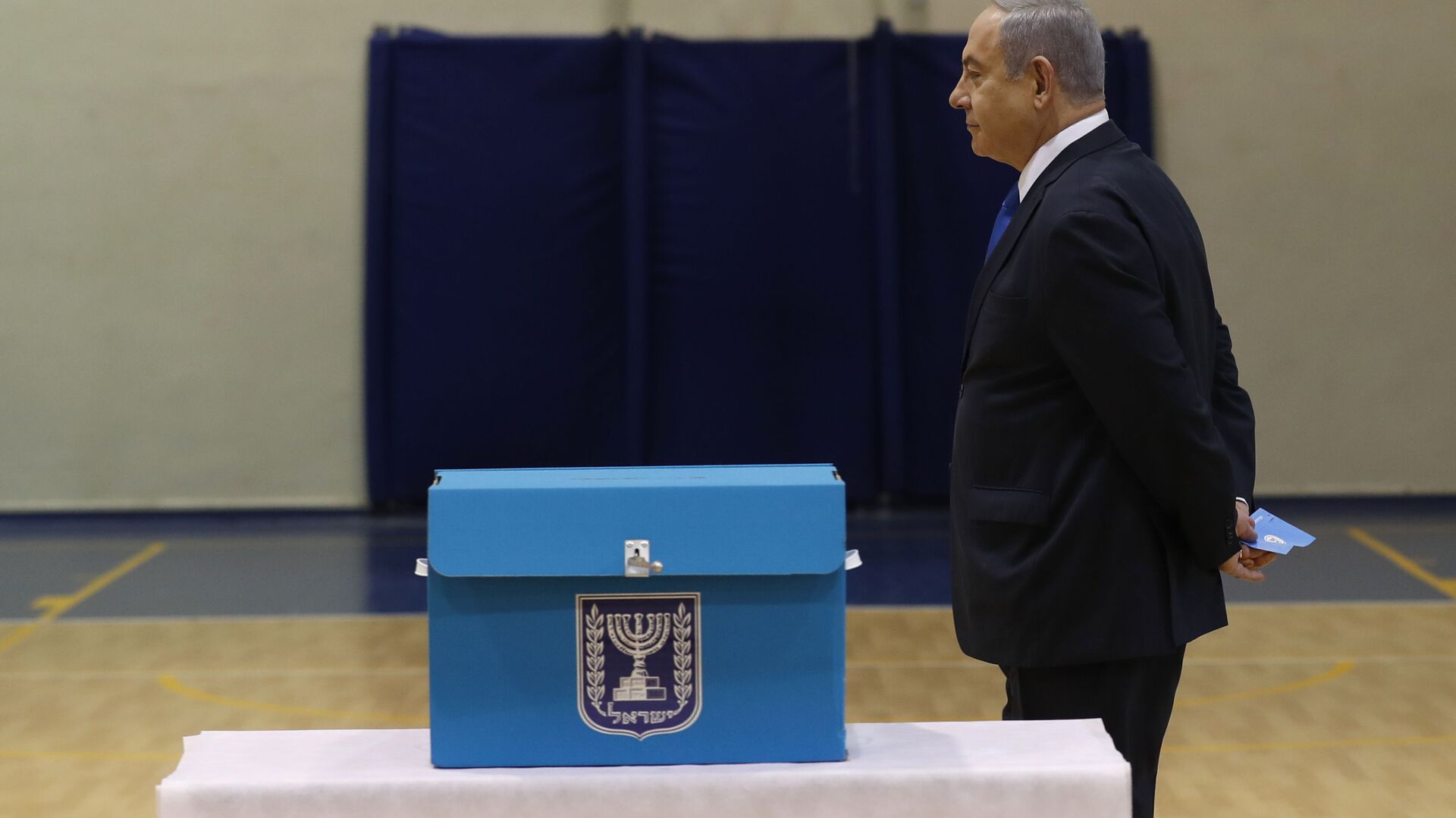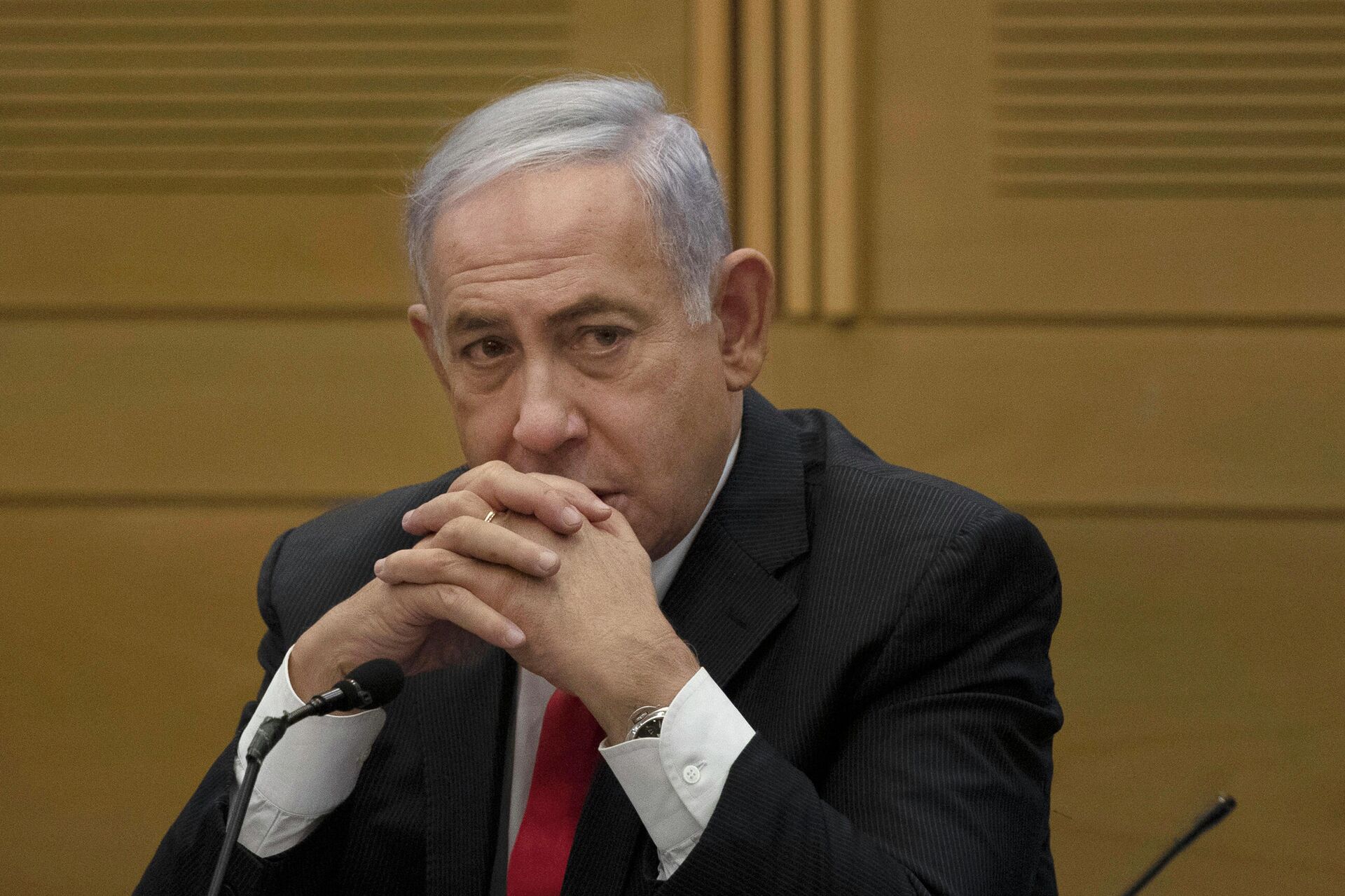Economics, Security, & Ideology to Determine the Outcome of Israel’s Upcoming Elections
06:48 GMT 10.07.2022 (Updated: 17:26 GMT 15.01.2023)

© AP Photo / Atef Safadi
Subscribe
Prices for fuel, basic food products and real estate have gone through the roof over the past several months. On top of that, security issues have emerged, as 19 civilians have lost their lives since March.
On November 1 Israelis will take to the polls again, choosing the parties that will enter its 120-seat parliament, the Knesset.
The parties have already started their pre-election campaigns. Parliamentarians are being interviewed and offering promises that life will improve if they’re elected.
What does an average Israeli care about? Here are the top three topics that matter for Israelis.
It's the Economy, Stupid
The past half-year has been exceptionally difficult for Israelis. Fuel prices have gone up six times since January 2022, with one liter now costing more than $2.39.
The price of basic products has also jumped since the start of the year. Dairy produce has registered an increase of 4.9 percent, eggs cost 6.5 percent more and bread is 28 percent more expensive. Salaries have largely remained the same; the average stands at 7,339 NIS or slightly more than $2,100 for the month of December in 2021.
Real estate, which had been expensive even before the current spike, has also seen a new height with prices going up 15 percent compared to the previous year. Municipal and electricity bills have increased 5.7 percent over the course of 2022.
The government of Naftali Bennett, which came to power in June 2021 failed to tackle the rising challenge. Although it did cancel taxes on some imported fruit and vegetables, and attempted to reduce the prices on fuel, those steps have only been a drop in the ocean. The spending power of average Israelis continued to shrink.

Israeli Prime Minister Naftali Bennett (R) listens to an aide as Foreign Minister Yair Lapid looks on during the weekly cabinet meeting in Jerusalem, on May 8, 2022
© AFP 2023 / MAYA ALLERUZZO
The dire economic situation has made waves on social media networks across Israel. Grumbling has become common that prices are too high and that the government has remained inactive. Demonstrations against the high costs of living are now a common phenomenon.
In early July, Israelis took to the center of Tel Aviv to vent anger at the government for failing to address their concerns. Many have also started setting up tents in their area, as a sign of unaffordable real estate prices.
Even though those measures are not yet on the level of the 2011 protests, when tens of thousands of Israelis protested across Israel, experts believe it is only a matter of time until the dissatisfaction with the current state of the economy will spill over.
Israelis, who will go to the polls in November, will want to square accounts with politicians there.
Security Matters
Israelis have gotten used to warfare. Since 1948, when the state was established, the country has fought seven major wars in addition to several operations in the Gaza Strip and the West Bank. It also experienced waves of terrorism. Thousands have been murdered and injured at the hands of Arab extremists.
The past several months have seen one of those waves. Since March, 19 civilians have been murdered in five terror attacks across Israel, something that is sure to be on the mind of Israelis when they go to the polls in November.

IDF Soldiers in Nablus during operation Defense Shield
According to a study conducted by the Israel Democracy Institute, security matters are the second top priority for Israelis, after the economy, when they come to cast their ballots.
However, while Israeli parties do not differ much regarding their fiscal affairs, making a decision tough for an average Israeli to decide who to choose, in defense, the difference is clear. Those who believe that Israel should be dealing with the Palestinians with an iron fist, will be opting for the hawkish factions. Others will be drawn to the more liberal candidates.
Bibi or Tibi?
The previous four rounds of Israeli polls have revolved around the issue of whether former Prime Minister Benjamin Netanyahu will stay in power. This time around, the battle will focus on whether he will manage to come back.
A poll conducted by Israel's channel 11 in late June shows that nearly 50 percent of Israelis believe Netanyahu is the fittest candidate to lead the country. His main challenger, the current PM Yair Lapid, is only getting 31 percent.
The reasons for Netanyahu's popularity are understandable. For years, he has been known as a man with an in-depth knowledge in international markets and economics. In the past, he’s played a pivotal role in opening Israel up to the world, boosting its high-tech sector and introducing reforms that improved the lives of ordinary Israelis. It was he who lowered airfare prices, and Netanyahu built more roads as well as improved Israel's infrastructure. The masses who are tired of the spiraling prices will expect him to do the same.
Another element that scores Netanyahu points is his strong military background.
Perceived in Israel as Mr. Security, Netanyahu is known for his hawkish approach towards the Israeli-Palestinian conflict. He is remembered for the expansion of settlement activity in the West Bank and for the three military campaigns in Gaza. This is the reason, why many believe his comeback will deter terrorists.

Former Israeli Prime Minister Benjamin Netanyahu speaks to right-wing opposition party members, at the Knesset, Israel's parliament, in Jerusalem on June 14, 2021.
© AP Photo / Maya Alleruzzo
In the run before the elections, Netanyahu is set to capitalize on these and other strengths. By casting a ballot for himself, he will be presented as a vote for a better economy and security. A vote for Lapid will be regarded as giving an opportunity to the Arab parties, including that of Ahmed Tibi, to take control over the parliament.
In 2015, that trick proved itself. Warning Israeli Jews of Arabs pouring to the ballots, thus threatening to take over the parliament, he managed to boost the turnout of the conservative voters. That move eventually paved a way for his re-election. However, it came at a price. Netanyahu was presented as a racist by the liberal circles. He was slammed within Israel's borders and outside. Four years later, Arab parties who capitalized on his racist remarks have managed to get stronger. Netanyahu's power declined.
Will he learn from the mistakes of the past? Experts agree that his current campaign will be fierce. Netanyahu will be fighting for his survival.
